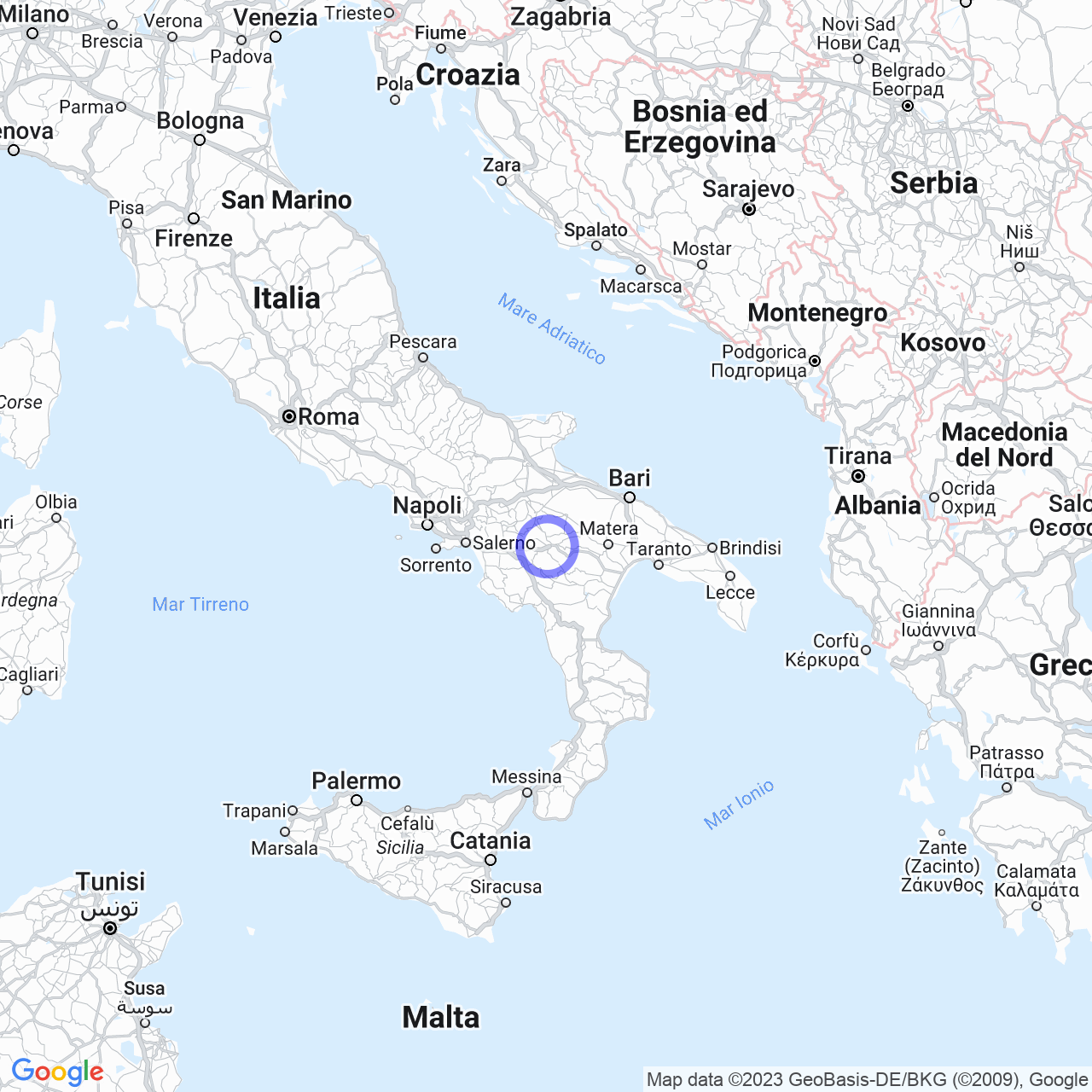Potenza
Potenza: the vertical city of one hundred stairs
Potenza is an Italian municipality located in Basilicata, of which it is the capital. With a population of 64,448 inhabitants, Potenza is the largest municipality in the region by number of inhabitants. Thanks to its particular urban structure, the city is known as the "vertical city". The historical center of Potenza is located on the highest hill of the city, with the districts gradually developing at lower levels. With its 819 meters above sea level, Potenza is the highest regional capital in Italy and the second highest provincial capital after Enna. The city is also famous for its system of stairs, both ancient and modern, which connect the different parts of the urban center, so much so that it is known as the "city of one hundred stairs" or "city of stairs". In addition, Potenza boasts the largest mobile staircase system for public transport in Europe and the second in the world after Tokyo.

Physical Geography
Territory
Potenza is located in the upper Basento valley, in a high-seismic area enclosed by the Li Foj Mountains, among the main peaks of the Lucanian Dolomites. The medieval core of the city is placed on a relief at 819 meters above sea level, while the more modern districts develop lower along the course of the Basento river.
Climate
The climate of Potenza is of the Mediterranean mountain type, with cold and snowy winters and mild and dry summers. January is the coldest month of the year, with an average temperature of +3.5°C, while July and August are the hottest months, with an average temperature slightly above +20°C.
Origin of the name
According to the first theory on the origin of the name of Potenza, reported by the historian Emmanuele Viggiano in his Memoirs of the City of Potenza, the toponym would derive from the Greek term "Potizo", attributed by the ancient Greeks to the city because of its position on the banks of the Basento river. Such a word in the Latin language would then have become "Potentia", from which the current name of the city.
History
Potenza has been the capital of Basilicata since 1806. In 1980, the city was hit by an earthquake that caused serious damage to the entire territory and population. In 1982, Potenza became the seat of the University of Basilicata, which contributed to the development of the city's economy. Over the years, Potenza has seen a remarkable development in its urban structure, leading to the creation of new modern neighborhoods and the redevelopment of some historical sites.
Places of Interest
The Historical Center
The historical center of Potenza is characterized by narrow streets and typical South Italian architecture. Among the main attractions of the historical center is the Cathedral of Santa Maria Assunta, dating back to the thirteenth century, which preserves the main altar in marble and the fresco of the Virgin Mary. Another place to visit is Palazzo Loffredo, located in Piazza Mario Pagano, which houses the Modern and Contemporary Art Gallery.
The Churches
The churches of Potenza represent an important part of the city's artistic and cultural heritage. Among the most famous is the Church of San Francesco, dating back to the twelfth century and preserving a gilded wooden Nativity scene and sixteenth-century frescoes. Another church to visit is the one of Santa Maria del Sepolcro, which contains the statues of San Vito, San Modesto, and Santa Crescenzia.
The Tibetan Bridge over the Basento
The Tibetan bridge over the Basento is one of the most visited places of interest in Potenza. It is a suspended bridge that crosses the Basento river and connects the city center with the railway district. The bridge is about 300 meters long and is one of the longest in Europe.
Conclusions
Potenza is a city rich in history, culture, and natural beauty, located in a mountainous territory and characterized by a mountain climate. Its particular urban structure, which makes it a vertical city, and its system of stairs make it unique in the world. Potenza has been able to value its artistic and cultural heritage, creating unique tourist attractions such as the Tibetan bridge over the Basento. If you are looking for a holiday destination to discover the beauty of Basilicata and its culture, Potenza is a destination worth considering.
